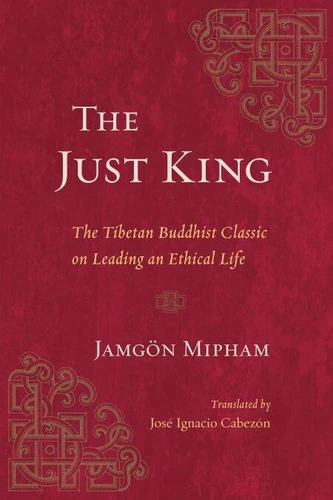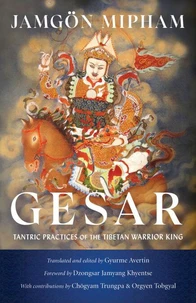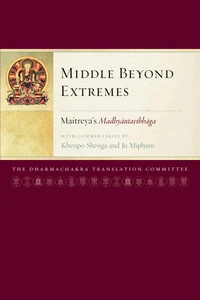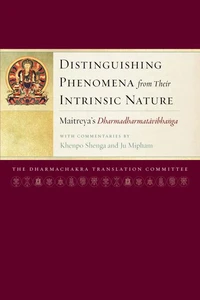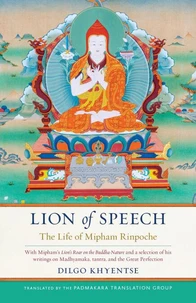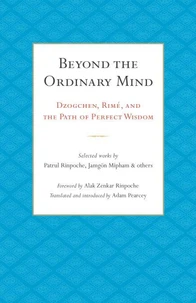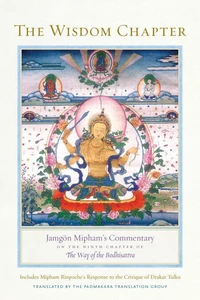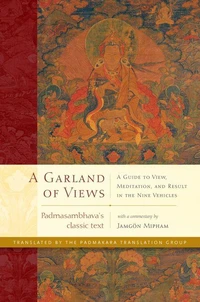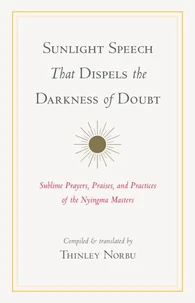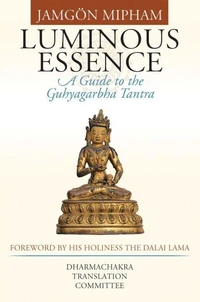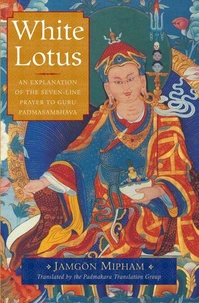The Just King. The Tibetan Buddhist Classic on Leading an Ethical Life
Par : ,Formats :
Disponible dans votre compte client Decitre ou Furet du Nord dès validation de votre commande. Le format ePub protégé est :
- Compatible avec une lecture sur My Vivlio (smartphone, tablette, ordinateur)
- Compatible avec une lecture sur liseuses Vivlio
- Pour les liseuses autres que Vivlio, vous devez utiliser le logiciel Adobe Digital Edition. Non compatible avec la lecture sur les liseuses Kindle, Remarkable et Sony
- Non compatible avec un achat hors France métropolitaine
 , qui est-ce ?
, qui est-ce ?Notre partenaire de plateforme de lecture numérique où vous retrouverez l'ensemble de vos ebooks gratuitement
Pour en savoir plus sur nos ebooks, consultez notre aide en ligne ici
- Nombre de pages336
- FormatePub
- ISBN978-0-8348-4089-8
- EAN9780834840898
- Date de parution18/07/2017
- Protection num.Adobe DRM
- Taille11 Mo
- Infos supplémentairesepub
- ÉditeurSnow Lion
Résumé
A translation of a popular Buddhist work on worldly ethics by Tibet's most famous philosopher. Leadership. Power. Responsibility. From Sun Tzu to Plato to Machiavelli, sages east and west have advised kings and rulers on how to lead. Their motivations and techniques have varied, but one thing they all have had in common is that their advice has been as relevant to the millions who have read their works as it has been to the few kings and princes they were, on the surface, addressed to.
The nineteenth-century Buddhist monk and luminary Jamgön Mipham's letter to the king of Dergé, whose small kingdom straddled China and Tibet during a particularly turbulent period, is similar in the universality of its message. This work, however, is unique in that it stresses compassion, impartiality, self-control, and virtue as essential for long-lasting success-whether as a leader or an individual trying to live a meaningful life.
Mipham's historic contribution to ethics and governance, until now little studied outside of Buddhist circles, teaches us the importance of protecting life, fair taxation, environmental sustainability, aiding the poor, and freedom of religion. Both present day leaders and those they lead will find this classic work, finally available in English, profoundly illuminating on political, societal, and personal levels.
The nineteenth-century Buddhist monk and luminary Jamgön Mipham's letter to the king of Dergé, whose small kingdom straddled China and Tibet during a particularly turbulent period, is similar in the universality of its message. This work, however, is unique in that it stresses compassion, impartiality, self-control, and virtue as essential for long-lasting success-whether as a leader or an individual trying to live a meaningful life.
Mipham's historic contribution to ethics and governance, until now little studied outside of Buddhist circles, teaches us the importance of protecting life, fair taxation, environmental sustainability, aiding the poor, and freedom of religion. Both present day leaders and those they lead will find this classic work, finally available in English, profoundly illuminating on political, societal, and personal levels.
A translation of a popular Buddhist work on worldly ethics by Tibet's most famous philosopher. Leadership. Power. Responsibility. From Sun Tzu to Plato to Machiavelli, sages east and west have advised kings and rulers on how to lead. Their motivations and techniques have varied, but one thing they all have had in common is that their advice has been as relevant to the millions who have read their works as it has been to the few kings and princes they were, on the surface, addressed to.
The nineteenth-century Buddhist monk and luminary Jamgön Mipham's letter to the king of Dergé, whose small kingdom straddled China and Tibet during a particularly turbulent period, is similar in the universality of its message. This work, however, is unique in that it stresses compassion, impartiality, self-control, and virtue as essential for long-lasting success-whether as a leader or an individual trying to live a meaningful life.
Mipham's historic contribution to ethics and governance, until now little studied outside of Buddhist circles, teaches us the importance of protecting life, fair taxation, environmental sustainability, aiding the poor, and freedom of religion. Both present day leaders and those they lead will find this classic work, finally available in English, profoundly illuminating on political, societal, and personal levels.
The nineteenth-century Buddhist monk and luminary Jamgön Mipham's letter to the king of Dergé, whose small kingdom straddled China and Tibet during a particularly turbulent period, is similar in the universality of its message. This work, however, is unique in that it stresses compassion, impartiality, self-control, and virtue as essential for long-lasting success-whether as a leader or an individual trying to live a meaningful life.
Mipham's historic contribution to ethics and governance, until now little studied outside of Buddhist circles, teaches us the importance of protecting life, fair taxation, environmental sustainability, aiding the poor, and freedom of religion. Both present day leaders and those they lead will find this classic work, finally available in English, profoundly illuminating on political, societal, and personal levels.

